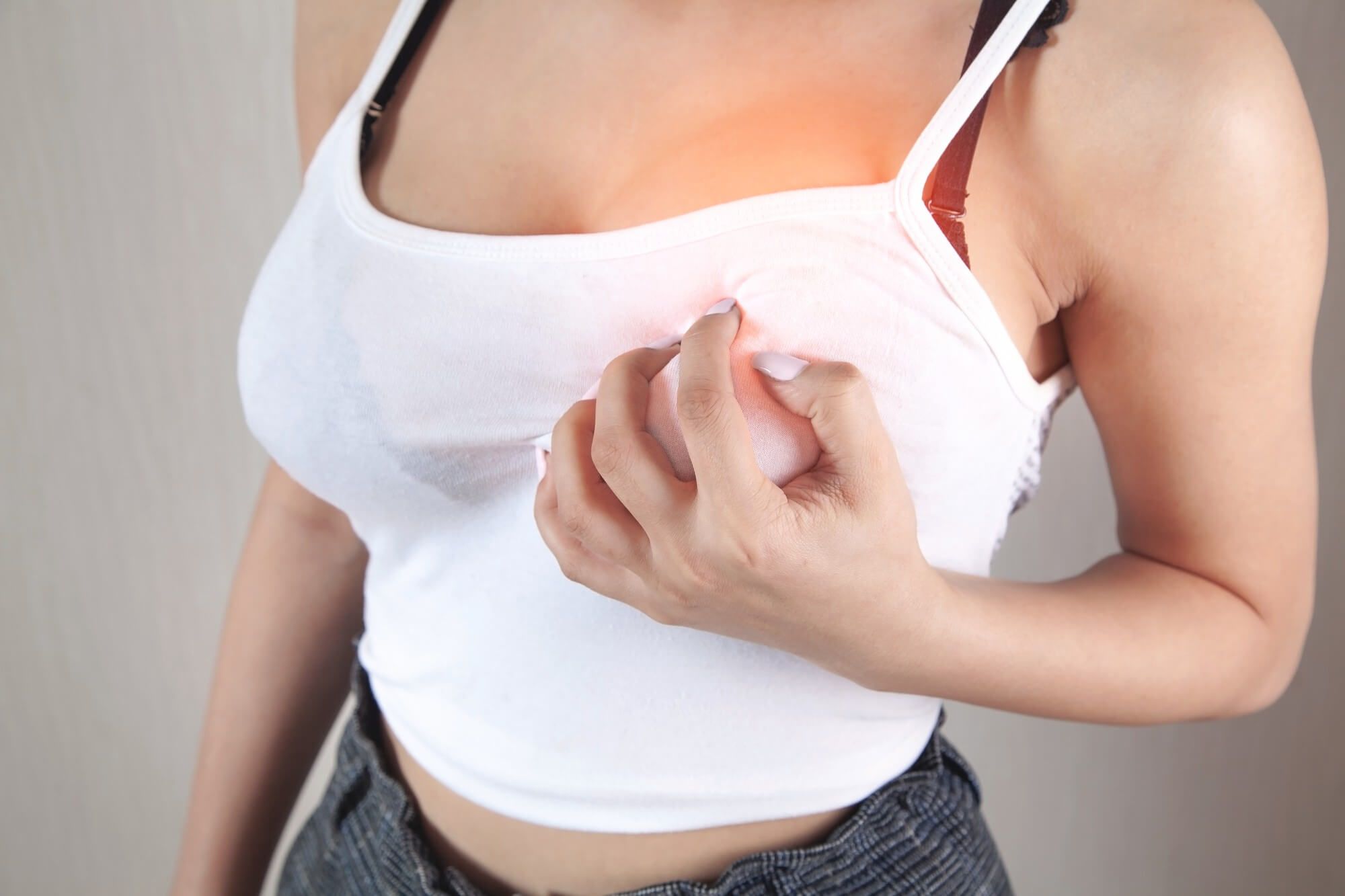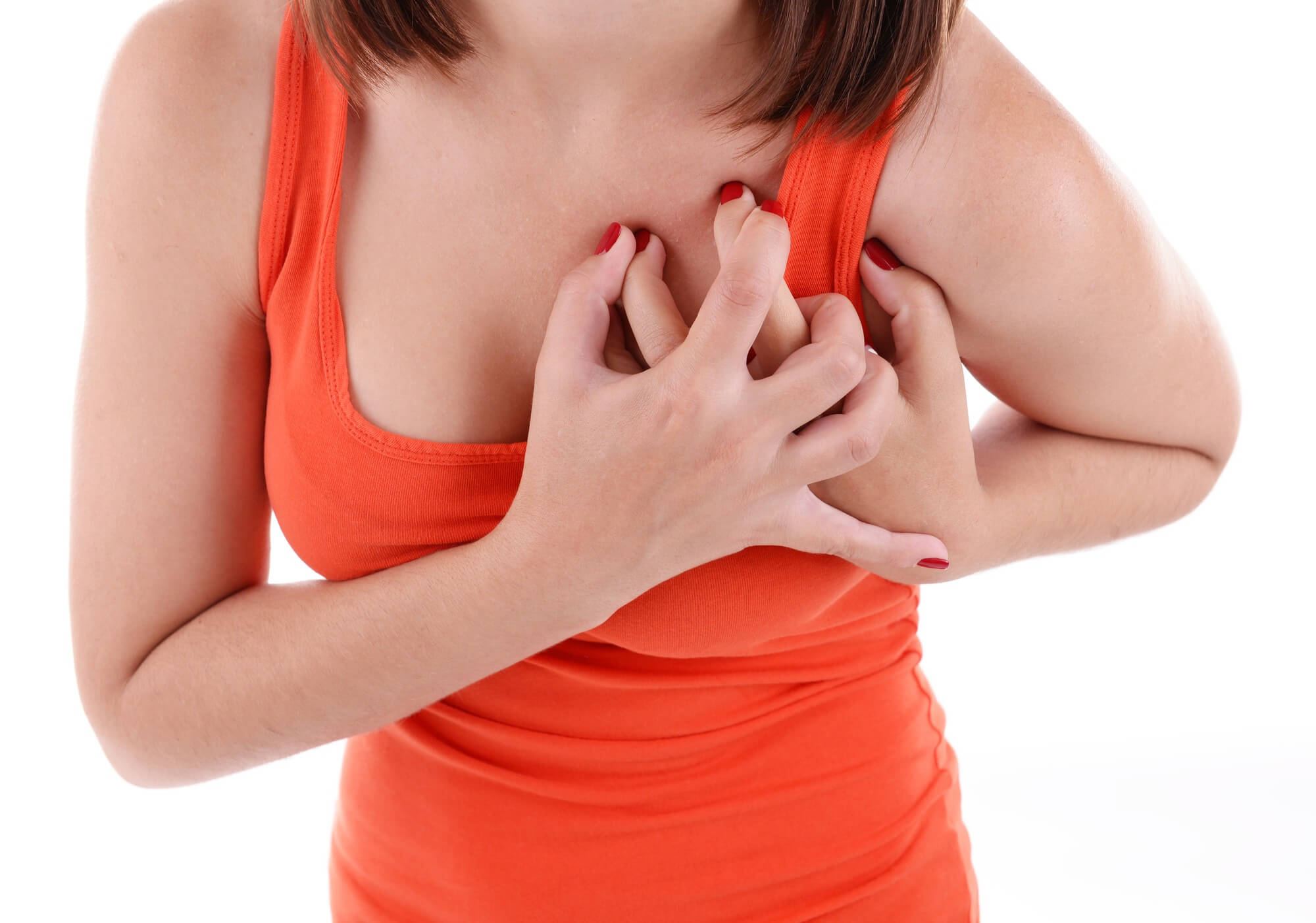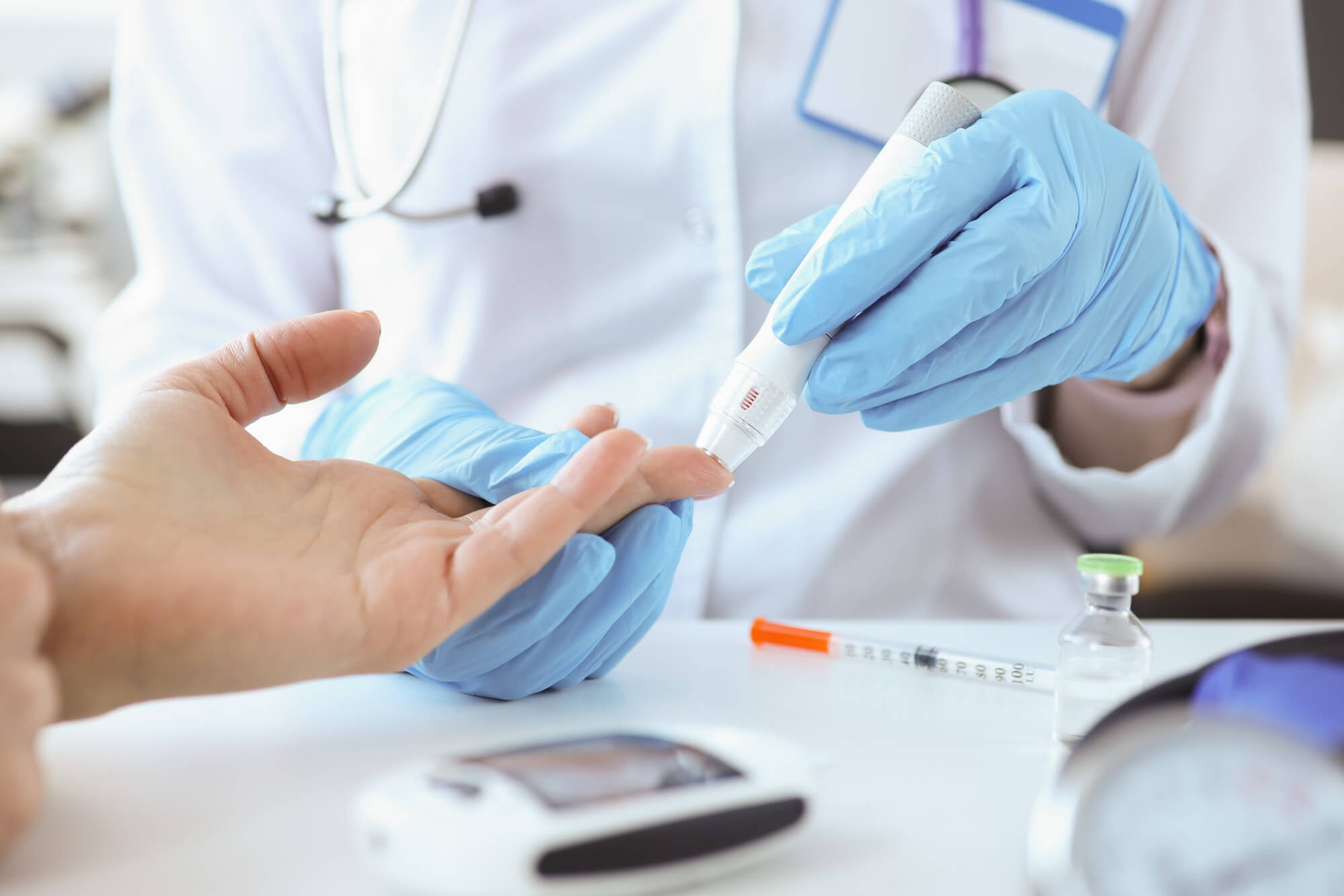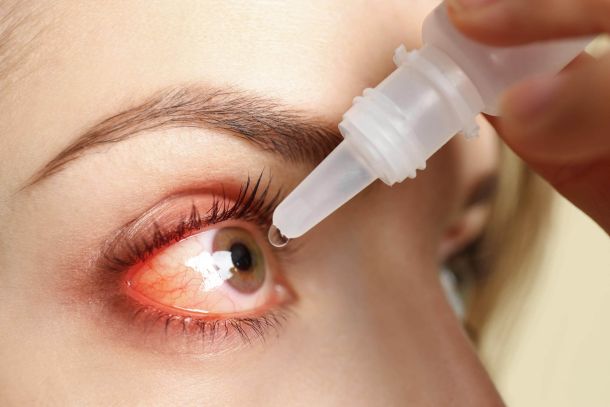Breast allergies: symptoms and treatment


Eva Zakharova
Breast allergy is a common condition that occurs in many people and can cause severe discomfort and itching. In this article, we will talk about the main causes, symptoms, and treatments for breast allergies, as well as learn about the prevention of this condition.
Defining Breast Allergy
Breast allergy is a reaction of the body's immune system to certain irritants that can cause allergic rashes on the breasts, allergic rashes and allergic spots. This condition can appear in different forms, depending on the cause of the allergy.
Causes of breast allergies
Breast allergies can be caused by various factors, including contact allergies, food allergies, drug allergies, and atopic dermatitis.
Contact allergies
Contact allergy occurs when the skin comes into direct contact with an irritant. Possible causes of contact allergy on the breast:
- Breast allergies can be caused by various materials used in clothing, such as synthetics or wool. An allergic reaction can also be caused by dyes or other chemicals used in the manufacturing process of clothing.
- An allergic rash on the chest can be caused by the use of certain detergents or mild laundry detergent. The chemical constituents of these products can cause irritation and allergic rashes on the skin of the breasts.
- Creams, masks, lotions and other cosmetic products that are applied to the breast area can cause allergic reactions. Such products may contain ingredients that cause allergies.
Food allergies

Food allergies can manifest as an allergic rash on the breast if certain foods cause an allergic reaction. The most common food allergens are milk, eggs, fish, nuts, soy, and wheat.
Drug allergies
Drug allergies can cause an allergic rash on the breast if the body does not react correctly to certain medications. It is important to tell your doctor about all the medications you are taking so he or she can determine the cause of the allergy.
Atopic dermatitis
Atopic dermatitis is a chronic skin condition that can cause allergic rashes on the chest and other parts of the body. The cause of atopic dermatitis is genetic predisposition and exposure to external factors.
Breast allergy symptoms

Breast allergies can manifest with a variety of symptoms, which include cutaneous manifestations and general symptoms.
Cutaneous symptoms of breast allergies may include:
- Redness and itching on the breasts are the most common manifestations of allergies. The itching can be persistent and uncomfortable, especially at night.
- An allergic rash on the breasts may appear as red skin, small spots, or scaly-covered areas. The appearance of the rash can vary depending on the cause of the allergy.
- In some cases, the allergic rash on the breast may take the form of water blisters (small blisters of fluid) or blisters (larger blisters). This may indicate a more severe allergic reaction and require immediate medical attention.
In addition to skin manifestations, chest allergies can cause general symptoms such as:
- General fatigue and weakness can be associated with an allergic reaction, especially if the body is actively fighting the allergen.
- Some people with chest allergies may experience headaches and runny nose, especially if the allergy is caused by food or drug allergens.
- In rare cases, chest allergies can cause difficulty breathing, which may be due to laryngeal swelling or bronchospasm. If you experience such symptoms, you should see your doctor immediately.
Chest allergy diagnosis

To diagnose breast allergy, the doctor will perform a history and examination, and may prescribe allergy tests and additional tests.
During the consultation, the doctor will clarify the symptoms, their duration, and possible causes of the allergy. Examination will determine the nature of the rash and the condition of the skin.
The doctor may prescribe allergy tests to determine the allergen causing the reaction:
- A skin test is a method in which a small amount of a potential allergen is applied to the skin and a reaction is observed. This allows you to determine which substances a person is allergic to.
- Blood tests may be ordered to determine antibody levels to certain allergens. This can help confirm or rule out a breast allergy.
- Depending on the symptoms and the suspected cause of the allergy, the doctor may prescribe additional tests, such as a general blood test, biochemical tests, or a consultation with other specialists.
Chest allergy treatment

Breast allergy treatment involves eliminating the cause of the allergy, relieving symptoms, and comprehensive treatment.
The first step in treating breast allergies is to identify and eliminate the cause of the allergy. This may include changing foods, changing cosmetics, changing detergents, or stopping certain medications.
Medications to relieve symptoms
The following medications may be prescribed to relieve breast allergy symptoms:
Antihistamines, such as loratadine, cetirizine or phenistyl, help reduce itching, redness and swelling of the skin.
For severe chest allergies, the doctor may prescribe hormonal ointments or creams, such as hydrocortisone or betamethasone. These medications reduce inflammation and itching, but should only be used as prescribed by your doctor and for short periods of time.
Emollients such as ointments and creams with oatmeal, panthenol or allantoin may be recommended to moisturize and repair the skin.
Comprehensive treatment

Comprehensive treatment for breast allergies may include the following methods:
For food allergies, it is important to eliminate allergens from the diet. It is also helpful to maintain a healthy lifestyle, including regular meals and adequate sleep.
In some cases, an allergist may recommend immunotherapy - the gradual introduction of an allergen into the body to reduce sensitivity to it. This method of treatment should only be carried out under the supervision of a specialist.
Breast allergy prevention
To prevent breast allergies, it is advisable to follow a few simple rules:
- Use hypoallergenic clothing, preferably made of natural materials.
- Avoid contact with known allergens.
- Use hypoallergenic detergents and cosmetics.
- Observe the rules of hygiene and skin care.
- Regularly ventilate the room and keep the house clean.
In conclusion, breast allergies can be caused by various factors, such as contact allergies, food allergies or atopic dermatitis. To successfully manage allergy symptoms, it is important to determine the cause of the allergy, relieve the symptoms, and provide comprehensive treatment.
New materials
Popular Articles
We recommend reading
Contact us in the Contact Us section to ask questions, offer ideas, or for more information about our allergy resource.
Our articles are your trusted source of allergy knowledge. Learn how to make life with allergic reactions easier on our specialized portal.
©
Lechenie-Allergii.com. All rights reserved.
© Lechenie-Allergii.com. All rights reserved.
The information on this site is for informational purposes only and is not a substitute for professional medical advice. We recommend consulting with qualified medical professionals for accurate information and advice.
 English
English  Українська
Українська  Русский
Русский 









